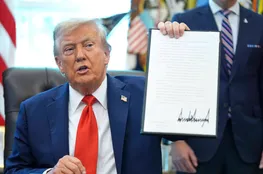In the months leading up to the chaotic U.S. withdrawal from Afghanistan, Biden administration officials diluted warnings about the deteriorating security situation and delayed launching an emergency evacuation for Americans and Afghan allies, according to a House Republicans report. This scathing report by GOP lawmakers on the House Foreign Affairs Committee criticizes President Joe Biden and his deputies, notably the acting ambassador to Kabul, for mishandling the 2021 exit by reducing troop levels while maintaining a large embassy staff and not preparing evacuation plans. The report is based on internal State Department documents and testimony from officials. Rep. Michael McCaul, R-Texas, the committee's chair, stated the administration had information and opportunities to take necessary planning steps for the anticipated collapse of the Afghan government but chose optics over security at each step.
Democrats on the committee dismissed the report as partisan and politically timed. Biden administration officials defended their handling of the exit, blaming former President Donald Trump for setting them up with a flawed deal with the Taliban that committed to withdrawing all troops by May 2021. Experts believe both Trump and Biden share responsibility for the debacle, with Trump reducing troop levels from 13,000 to 2,500 and Biden mishandling the withdrawal execution. Both administrations ignored the Taliban's failure to meet commitments and disregarded advice to retain a small U.S. force. Neither prepared detailed contingency plans for evacuating U.S. Embassy staff and Afghan allies, according to refugee advocates and former officials.
Trump initially praised the withdrawal but later criticized Biden for not adhering to the May deadline. The House report states that U.S. officials in Kabul tried to alert their superiors about the dire security situation, but warnings were downplayed and memos sanitized. Greg Sherman, a senior State Department official, indicated memos on security threats were watered down before reaching Secretary of State Antony Blinken under pressure to keep the embassy open despite Taliban advances.
By mid-July 2021, 26 embassy staff raised concerns through a “dissent cable,” warning of an impending collapse and urging serious evacuation planning. The report criticizes the White House and State Department for failing to plan an emergency evacuation and for the delay in ordering it once needed. Testimony revealed embassy inaction despite knowing about the looming military departure, with the acting ambassador Ross Wilson alleged to have not properly planned for evacuation. Army Gen. Mark Milley testified that not requesting an evacuation until Kabul fell was a critical mistake.
The report also highlights the plight of Afghan interpreters and workers who couldn’t gain airport entry due to a disorganized evacuation. It wasn’t until late July that the State Department began flying out Afghans promised special visas. Amid the chaos, many unqualified Afghans secured flights, while those who aided the embassy were left behind. Republican lawmakers have repeatedly expressed similar criticisms since the withdrawal.
Trump, who reduced troops before leaving office despite Taliban failures, proposed inviting Taliban leaders to Camp David. His envoy to Afghanistan, Zalmay Khalilzad, is criticized for trusting the Taliban despite their broken commitments and undermining the Afghan government by excluding them from negotiations. U.S. officials hoped the Afghan government would control by the U.S. troops' scheduled September departure, but the Afghan army collapsed quickly. Concerns about airport security were realized when an ISIS-K suicide bomber killed 170 civilians and 13 U.S. military personnel in an attack on the crowds.
























